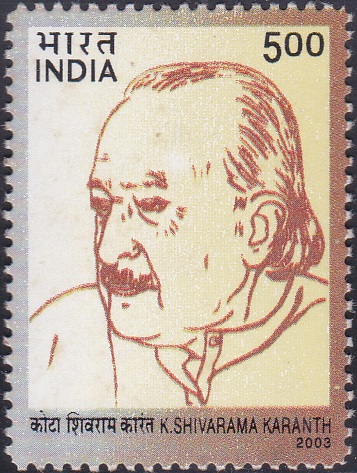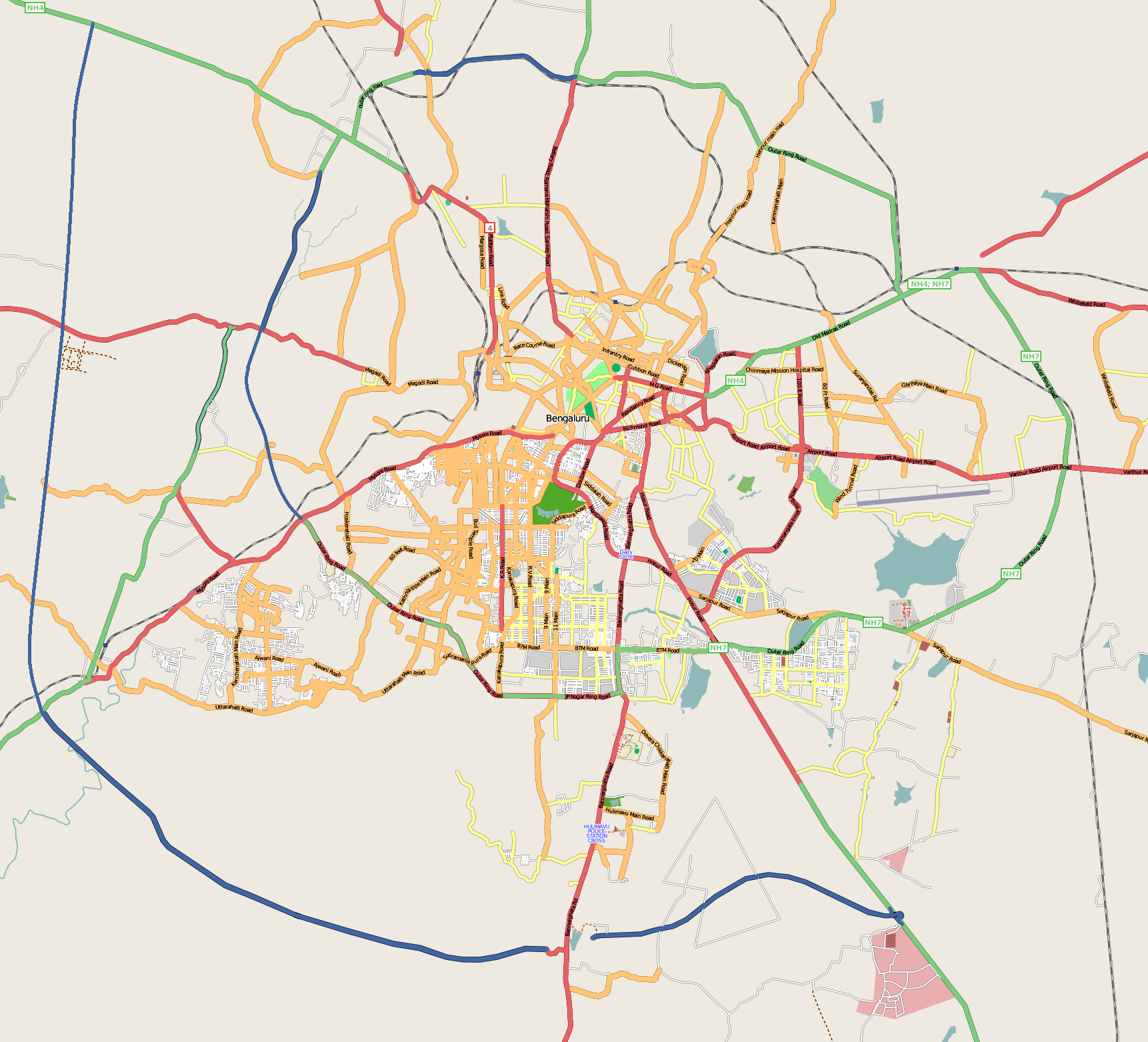|
Kannada Films
Kannada cinema, also known as Sandalwood, or Chandanavana, is the segment of Indian cinema dedicated to the production of motion pictures in the Kannada language widely spoken in the state of Karnataka. Kannada cinema is based in Gandhi Nagar, Bengaluru. The 1934 film ''Sati Sulochana'' directed by Y. V. Rao was the first talkie film released in the Kannada language. It was also the first film starring Subbaiah Naidu and Tripuramba, and the first screened in the erstwhile Mysore Kingdom. It was produced by Chamanlal Doongaji, who in 1932 founded ''South India Movietone'' in Bengaluru. Major literary works have been adapted to the Kannada screen, such as B. V. Karanth's ''Chomana Dudi'' (1975), (based on ''Chomana Dudi'' by Shivaram Karanth), Girish Karnad's '' Kaadu'' (1973), (based on ''Kaadu'' by Srikrishna Alanahalli), Pattabhirama Reddy's '' Samskara'' (1970) (based on ''Samskara'' by U. R. Ananthamurthy), which won the Bronze Leopard at Locarno International Film ... [...More Info...] [...Related Items...] OR: [Wikipedia] [Google] [Baidu] |
Deccan Herald
''Deccan Herald'' is an Indian English-language daily newspaper published from the Indian state of Karnataka. It was founded by businessman K. N. Guruswamy and launched on 17 June 1948. It is published by The Printers Mysore, a privately held company owned by the Nettakallappa family, heirs of Guruswamy. It has seven editions printed from Bengaluru, Hubballi, Davanagere, Hosapete, Mysuru, Mangaluru, and Kalaburagi. History and background ''Deccan Herald'' was launched on 17 June 1948. Its founder, K. N. Guruswamy, in search of a suitable location for a news publishing business, purchased a bar and restaurant called Funnel's, that was owned by an Irish couple, in March 1948. Despite having no experience in the newspaper industry, Guruswamy, along with his close aides and well wishers, decided to launch two newspapers from Bangalore since there was no such title at the time. Veteran journalist Pothan Joseph served as its founding editor, which gave it a strong footing a ... [...More Info...] [...Related Items...] OR: [Wikipedia] [Google] [Baidu] |
Tikkavarapu Pattabhirama Reddy
Tikkavarapu Pattabhirama Reddy (19 February 1919 – 6 May 2006) was an Indian film screenwriter, producer, director, social activist, poet, and writer known for his pioneering works in Telugu cinema, and Kannada cinema. Reddy has received three National Film Awards for his works. In 1972 he produced and directed '' Samskara'' which garnered the National Film Award for Best Feature Film and Bronze Leopard at the Locarno International Film Festival. Reddy has actively participated the Indian Emergency opposition movement, human rights movement, and child labor movements as founder member of People's Union for Civil Liberties. In 1977, he produced and directed the bilingual ''Chandamarutha'' in Kannada, and English. The film was banned during the Emergency, and was later released to critical appreciation. Personal life Pattabhirama Reddy was born in Nellore, Andhra Pradesh into a Telugu speaking family. He studied at Shantiniketan, Calcutta University and Columbia University. H ... [...More Info...] [...Related Items...] OR: [Wikipedia] [Google] [Baidu] |
Srikrishna Alanahalli
Srikrishna Alanahalli (3 April 1947 – 4 January 1989) was an Indian novelist and poet. The majority of his works are written in the Kannada language. He became popular for his novels ''Kaadu'' (1972), ''Parasangada Gendethimma'' (1978) and ''Bhujangayyana Dasavataragalu'' (1982), all of which were adapted into films. Short stories * Tapta * Geejagana Goodu * Finix * Samagra Kathegalu * Srikrishna Aalanahalli Sahitya Vachike — Ed: Vivek Shanbhag Poetry * Mannina Haadu * Kaadu Gidada Haadu Paadu * Dogri Pahaadi Premageetegalu Novels * ''Kaadu/ಕಾಡು'' * ''Parasangada Gendethimma'' * ''Bujangayyana Dashavataragalu'' * ''Gode'' (sequel to ''Kaadu'') Film adaptations of his work * ''Kaadu'' (1973) * '' Parasangada Gendethimma'' (1979) * ''Geejagana Goodu'' (1975) * ''Kurubara Lakkanoo Elizebheth Raaniyoo'' (1976) * ''Rosappu Ravikkaikari ''Rosappu Ravikkaikari'' () is a 1979 Indian Tamil language, Tamil-language historical romance film directed by Devara ... [...More Info...] [...Related Items...] OR: [Wikipedia] [Google] [Baidu] |
Kaadu (1973 Kannada Film)
''Kaadu'' ( ) is a 1973 Indian Kannada-language film written and directed by Girish Karnad. The screenplay was based on a novel of the same name by Srikrishna Alanahalli. It stars Master G. S. Nataraj, Amrish Puri and Nandini Bhaktavatsala. The film won awards at the 21st National Film Awards and the Filmfare Awards South, 21st Filmfare Awards South. Kamal Haasan called it one of his favourite films and said this film served as inspiration for his film ''Thevar Magan'' (1992). Plot Kitti, an eight-year-old boy, is brought from a city to a village called Koppal by his uncle, Chandre Gowda. Gowda is married to Kamali and the couple are childless. Kitti develops a deep attachment to Kamali and the thick forests in Koppal. Gowda is a frequent visitor to a nearby village called Hosur, where he has a mistress, Basakka. Kamali is aware of her husband's extra marital relationship, but remains helpless. On one evening, Kamali takes Kitti and a servant along with her to the forest. They m ... [...More Info...] [...Related Items...] OR: [Wikipedia] [Google] [Baidu] |
Girish Karnad
Girish Karnad (19 May 1938 – 10 June 2019) was an Indian playwright, actor, film director, Kannada writer, and a Jnanpith awardee, who predominantly worked in Kannada, Hindi, Tamil, Telugu, Malayalam and Marathi films. His rise as a playwright in the 1960s marked the coming of age of modern Indian playwriting in Kannada, just as Badal Sarkar did in Bengali, Vijay Tendulkar in Marathi, and Mohan Rakesh in Hindi. He was a recipient of the 1998 Jnanpith Award, the highest literary honour conferred in India. For four decades Karnad composed plays, often using history and mythology to tackle contemporary issues. He translated his plays into English and received acclaim. His plays have been translated into some Indian languages and directed by directors like Ebrahim Alkazi, B. V. Karanth, Alyque Padamsee, Prasanna, Arvind Gaur, Satyadev Dubey, Vijaya Mehta, Shyamanand Jalan, Amal Allanaa and Zafer Mohiuddin. He was active in the world of Indian cinema working as an a ... [...More Info...] [...Related Items...] OR: [Wikipedia] [Google] [Baidu] |
Shivaram Karanth
Kota Shivaram Karanth (10 October 1902 – 9 December 1997), also abbreviated as K. Shivaram Karanth, was an Indian author, who was a novelist in Kannada language, playwright and an ecological conservationist. Ramachandra Guha called him the "Rabindranath Tagore of Modern India, who has been one of the finest novelists-activists since independence". He was the third writer to be decorated with the Jnanpith Award for Kannada, the highest literary honor conferred in India. His son Ullas is an ecological conservationist. Early life Shivaram Karanth was born on 10 October 1902, in Kota near Kundapura in the Udupi district of Karnataka to a Kannada-speaking Smartha Brahmin family. The fifth child of his parents Shesha Karantha and Lakshmamma, he completed his primary education in Kundapura and Bangalore. Shivaram Karanth was influenced by Gandhi's principles and took part in the Indian Independence movement when he was in college. His participation in the Non-cooperation movem ... [...More Info...] [...Related Items...] OR: [Wikipedia] [Google] [Baidu] |
Chomana Dudi
''Chomana Dudi'' (, ) is a 1975 Indian Kannada-language drama film directed by B. V. Karanth and starring M. V. Vasudeva Rao and Padma Kumta. It is based on a novel of the same name, written by Shivaram Karanth. The film was released in the year 1975 and won the ''Swarna Kamal'', India's National Award for the best film. This was also the first Kannada movie to feature a reference to the demigod '' Panjurli''. Plot Choma is an untouchable bonded-labourer in a village who is working along with his family for a landlord, as he belongs to a backward class.Shampa Banerjee, Anil Srivastava (1988), p65 Due to his social status, he is not allowed to till his own land, something that he desires most. Though he managed to rear a pair of bullocks that he found straying in the forest, he cannot use them to till the land. He comes in contact of Christian missionaries who try to convert him giving him the lure of the land, but Choma does not want to let go of his faith. He releases the ... [...More Info...] [...Related Items...] OR: [Wikipedia] [Google] [Baidu] |
Bengaluru
Bengaluru, also known as Bangalore (List of renamed places in India#Karnataka, its official name until 1 November 2014), is the Capital city, capital and largest city of the southern States and union territories of India, Indian state of Karnataka. As per the 2011 Census of India, 2011 census, the city had a population of 8.4 million, making it the List of cities in India by population, third most populous city in India and the most populous in South India. The Bengaluru metropolitan area had a population of around 8.5 million, making it the List of million-plus urban agglomerations in India, fifth most populous urban agglomeration in the country. It is located near the center of the Deccan Plateau, at a height of above sea level. The city is known as India's "Garden City", due to its parks and greenery. Archaeological artifacts indicate that the human settlement in the region happened as early as 4000 Common Era, BCE. The first mention of the name "Bengalooru" is from an ol ... [...More Info...] [...Related Items...] OR: [Wikipedia] [Google] [Baidu] |
Chamanlal Doongaji
Chamanlal Doongaji was an Indian businessman, film producer and distributor known for producing the first-ever talking film in Kannada, ''Sati Sulochana''. He founded a film distribution company named ''South India Movietone'' in 1932. He was from a Marwari family and was based in Bengaluru Bengaluru, also known as Bangalore (List of renamed places in India#Karnataka, its official name until 1 November 2014), is the Capital city, capital and largest city of the southern States and union territories of India, Indian state of Kar .... References Indian film producers Kannada film producers {{film-producer-stub ... [...More Info...] [...Related Items...] OR: [Wikipedia] [Google] [Baidu] |
Mysore Kingdom
The Kingdom of Mysore was a geopolitical realm in South India, southern India founded in around 1399 in the vicinity of the modern-day city of Mysore and prevailed until 1950. The territorial boundaries and the form of government transmuted substantially throughout the kingdom's lifetime. While originally a feudal vassal under the Vijayanagara Empire, it became a princely state in British Raj from 1799 to 1947, marked in-between by major political changes. The kingdom, which was founded and ruled for the most part by the Wadiyar dynasty, Wadiyars, initially served as a feudal vassal under the Vijayanagara Empire. With the gradual decline of the Empire, the 16th-century Timmaraja Wodeyar II declared independence from it. The 17th century saw a steady expansion of its territory and, during the rules of Kanthirava Narasaraja I, Narasaraja Wodeyar I and Chikka Devaraja, Devaraja Wodeyar II, the kingdom annexed large expanses of what is now southern Karnataka and parts of Tamil Nadu ... [...More Info...] [...Related Items...] OR: [Wikipedia] [Google] [Baidu] |
Tripuramba
Tripuramba (1910–1979) was an Indian actress and singer who worked in Kannada films. She is best remembered for her role Sulochana in the first Kannada talkie Sati Sulochana, released in 1934, which made her the first heroine of Kannada cinema. Career Tripuramba played the role of Sulochana, the wife of Indrajith, in the first talkie film of Kannada cinema Sati Sulochana opposite Subbaiah Naidu. This movie made her the first heroine of Kannada. Her only other movie was Purandaradasa Purandara Dasa (IAST: Purandara Dāsa; (1470 – 1564) was a composer, singer and a Haridasa philosopher from present-day Karnataka, India. He was a follower of Madhvacharya's Dvaita philosophy. He was one of the chief founding proponents ... in 1937. She died in 1979. Filmography Apart from numerous stage plays, Tripuramba acted in two films. References External links {{Authority control 1910 births 20th-century Indian actresses Actresses in Kannada cinema People from ... [...More Info...] [...Related Items...] OR: [Wikipedia] [Google] [Baidu] |




